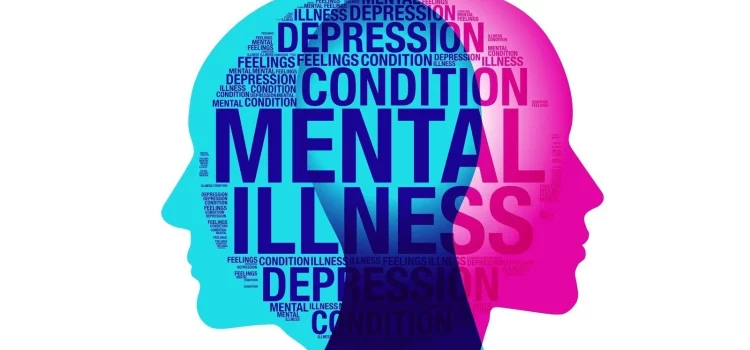
Introduction: Understanding the Mental Health Landscape in Miami
Mental health is just as important as physical health, yet many people often overlook it—especially in fast-paced urban centers like Miami. Known for its beautiful beaches, nightlife, and multicultural vibes, Miami is a vibrant city. However, beneath the surface, many residents are quietly struggling with mental health issues like stress, anxiety, depression, and trauma.
As life becomes more demanding and unpredictable, more people are seeking help to understand their emotions, improve their mental well-being, and cope with life’s challenges. This article explores the growing concerns around mental health in Miami, what’s contributing to these issues, and where individuals can find the support they need.
Rising Mental Health Challenges in Miami
Mental health problems in Miami have been on the rise, especially in recent years. Factors such as job stress, cost of living, immigration struggles, cultural expectations, and the lingering effects of the COVID-19 pandemic have intensified emotional strain for many residents.
Common Mental Health Issues
- Anxiety Disorders: Many people in Miami experience excessive worry, panic attacks, or social anxiety.
- Depression: Feelings of sadness, loss of motivation, and hopelessness are commonly reported.
- Substance Abuse: Some turn to drugs or alcohol to cope with emotional pain, leading to addiction.
- Post-Traumatic Stress Disorder (PTSD): This is especially common among immigrants, crime victims, or individuals exposed to trauma.
- Youth Mental Health Problems: Teens and young adults in Miami are increasingly facing pressure from school, family, and social media.
Factors Contributing to Mental Health Issues in Miami
High Cost of Living and Financial Stress
Miami is one of the most expensive cities in the U.S. The financial pressure of paying rent, buying groceries, and supporting a family can be overwhelming. This often leads to anxiety and depression, especially for individuals with limited access to healthcare or steady income.
Cultural Pressures
Miami’s diverse population includes people from Cuba, Haiti, Central and South America, and more. While this diversity is beautiful, cultural stigma around mental health in some communities prevents people from speaking openly about their struggles or seeking therapy.
Natural Disasters and Climate Stress
Miami frequently faces hurricanes and rising sea levels. Living under the constant threat of weather-related disasters can cause chronic stress and anxiety about safety and the future.
Urban Isolation
Although Miami is a busy city, many people feel lonely and disconnected, especially after moving from other states or countries. Lack of strong social connections can deeply impact emotional health.
Why Seeking Mental Health Support Matters
Ignoring mental health concerns can lead to bigger problems in the long run—such as physical illness, relationship breakdowns, poor work performance, or even self-harm.
On the other hand, getting help early can make a huge difference. Therapy and support systems provide tools to:
- Cope with stress
- Improve relationships
- Build confidence
- Understand emotional triggers
- Recover from trauma
Even simple steps like talking to someone or attending a support group can lead to long-term emotional wellness.
Accessible Mental Health Services in Miami
Luckily, Miami offers many resources for those seeking mental health support. Whether you’re looking for affordable therapy, crisis hotlines, or support groups, help is available.
Public Mental Health Clinics
Miami-Dade County provides several low-cost or free clinics offering:
- Individual therapy
- Group counseling
- Psychiatric evaluations
- Medication management
You can visit Jackson Behavioral Health Hospital or Community Health of South Florida Inc. (CHI) for services tailored to low-income residents.
Private Therapy Options
Many private therapists and psychologists in Miami offer:
- One-on-one counseling
- Couples therapy
- Child and adolescent therapy
- Online therapy sessions (telehealth)
Use directories like PsychologyToday.com or TherapyForLatinx.org to find professionals who speak your language or specialize in your concerns.
Nonprofits and Hotlines
Some excellent nonprofits and crisis lines include:
- NAMI Miami: Offers family education, support groups, and advocacy.
- 211 Miami: A 24/7 helpline connecting people to mental health, housing, and food services.
- Switchboard Miami: Offers suicide prevention and emotional support via phone.
Mental Health Support for Specific Communities
Immigrant and Refugee Services
Organizations like the Haitian-American Community Development Corporation and Catholic Charities offer bilingual counseling and support tailored to immigrant families.
LGBTQ+ Community Resources
Miami has a strong network of LGBTQ+ mental health providers and safe spaces like:
- The Alliance for LGBTQ Youth
- Pridelines
- Yes Institute
These organizations provide trauma-informed, affirming support for individuals navigating identity, family acceptance, and social stress.
Youth and School Support
Schools in Miami-Dade now include social workers and counselors trained to support students with anxiety, bullying, or family issues. Miami Children’s Initiative and Lotus House also offer services for at-risk youth.
Self-Care Practices to Support Mental Health
In addition to professional help, self-care plays a vital role in maintaining emotional balance. Some accessible ways to care for your mental health include:
- Daily walks or exercise
- Journaling your thoughts
- Practicing mindfulness or meditation
- Spending time with friends or family
- Getting enough sleep
- Limiting time on social media
Even small habits done consistently can lead to a big improvement in your mental state.
Breaking the Stigma Around Mental Health in Miami
Despite growing awareness, mental health stigma still exists, especially in older generations and some ethnic communities. But mental illness is not a weakness—it’s a health issue, just like any other.
Talking about mental health, supporting friends, and sharing resources helps normalize seeking help. Communities grow stronger when everyone feels safe asking for support.
Conclusion
Mental health is a vital part of overall well-being, and seeking support should never be viewed as a weakness. In a vibrant but high-pressure city like Miami, it’s important to recognize the signs of emotional strain and take action early. Whether you’re facing stress, anxiety, or depression, resources are available to help you heal and thrive. By reaching out to clinics, community organizations, or private therapists, you can begin your journey toward a healthier, happier life. Remember, asking for help is a sign of strength—and help is always within reach.










